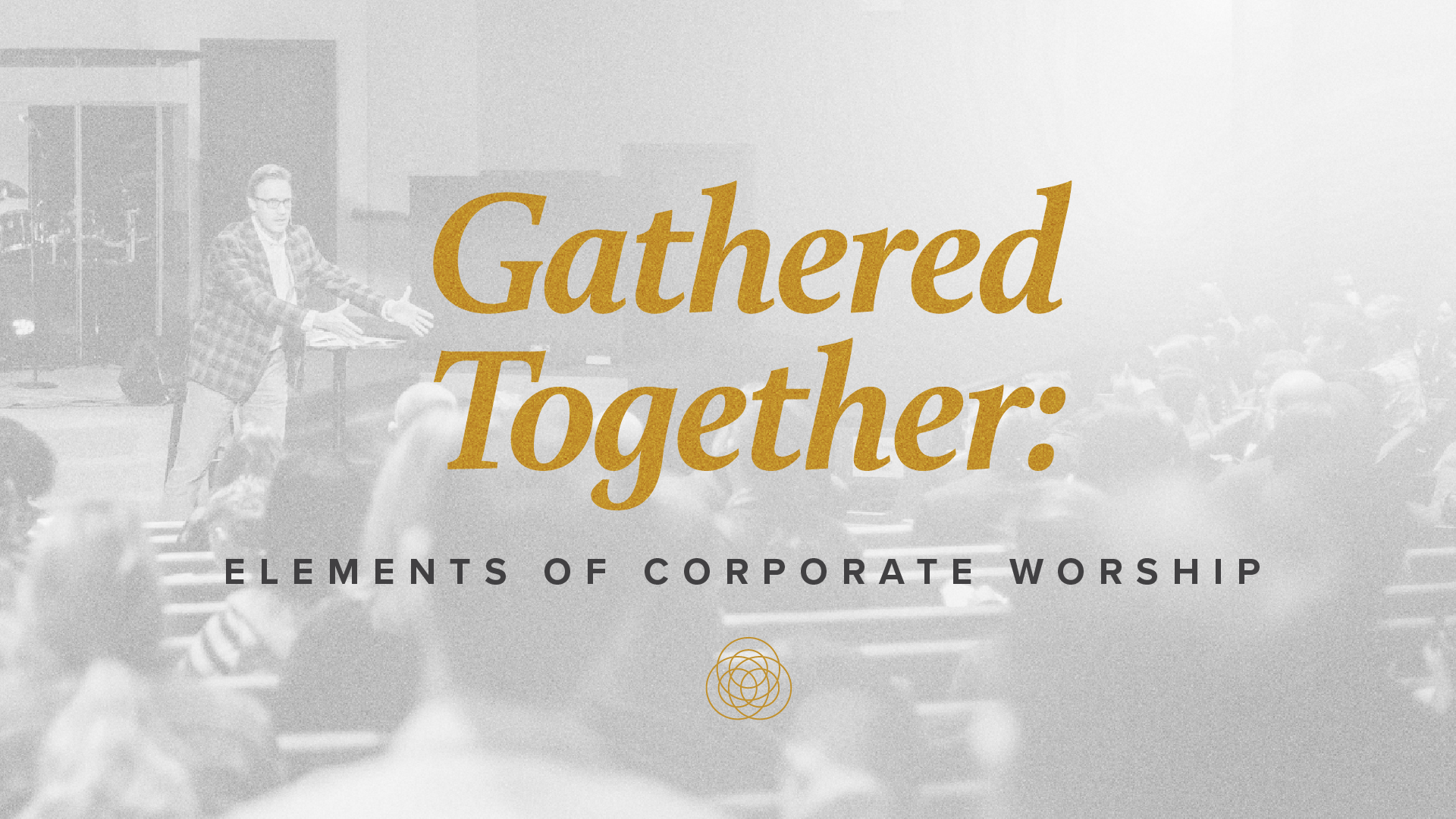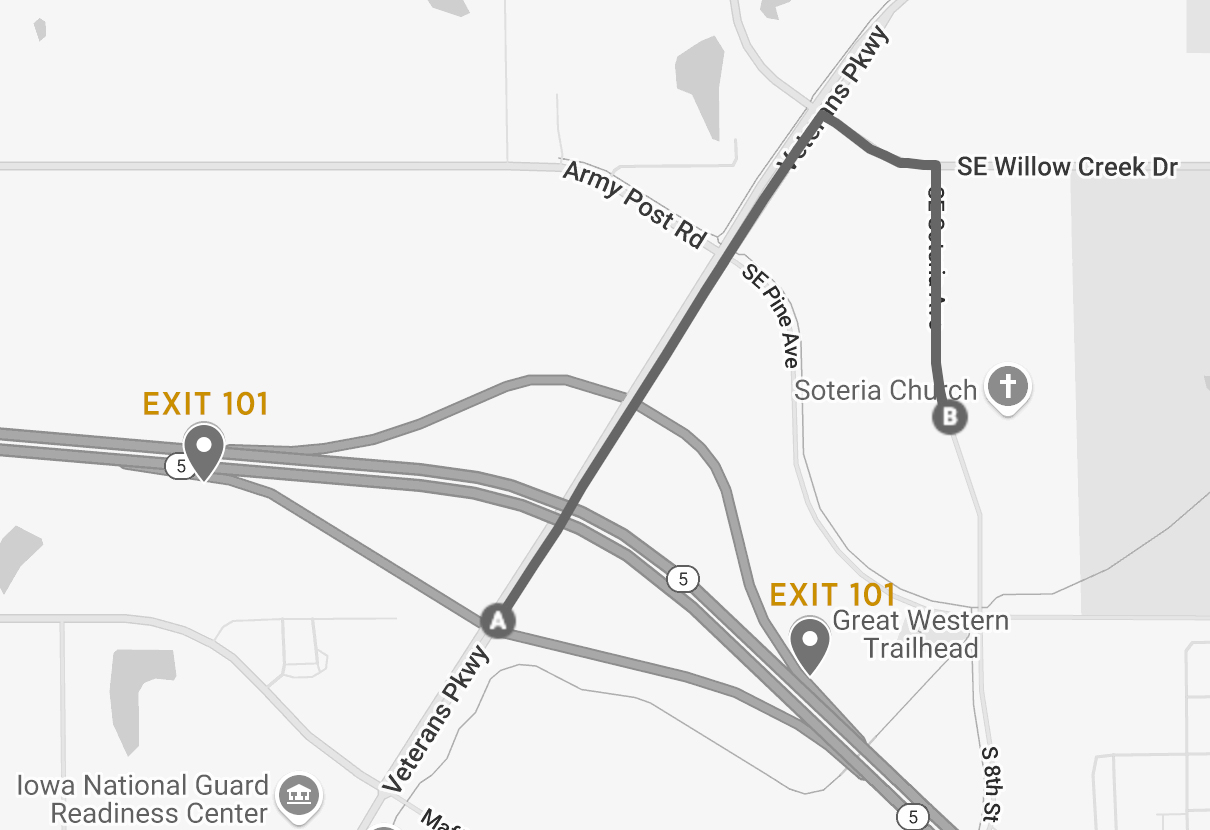Why We Saturate Our Service With Prayer
Gathered Together: Elements of Corporate Worship
By Zach Dietrich
If you go to seminary, you’ll learn how to teach, administrate, diagram Greek, organize a library, write papers, counsel marriages, and more. You’ll discuss history, philosophy, ministry, heresies, and lots of theology. You’ll write papers, read books, and write more papers. But, as someone once pointed out, rarely, if ever, do future pastors learn how to lead prayer.
Don’t get me wrong – if you go to seminary, you’ll pray. A lot. And professors pray for you. A lot. But there are no lectures on what to pray for in public. Nor do I remember ever being assigned a written Sunday morning prayer.
Perhaps that’s because prayer is something we assume we do, but we don’t often prepare or plan for. Paul told the Colossians to “be devoted to prayer” (Colossians 4:2). And, prayer was one of the four purposes of the early church. “They devoted themselves to…the prayers” (Acts 2:42). If we would be devoted to prayer, we ought to plan to pray.
Our Gathered Together series is a behind-the-scenes look at how we plan our services to fulfill God’s purposes for our gathering. We’ve discussed why we meet on Sundays and why we begin with a call to worship. Now, let’s devote some attention to our prayers.
You may not know this, but we plan prayer in our Sunday services. I have even been known to assign writing a pastoral prayer to interns. Planning to pray can help train our hearts and conform our wills to God’s will.
We pray multiple times in our services, but even last week, our pastors asked one another about possible opportunities we are missing to pray in our gatherings. God forbid that we rely on our own strength.
Our staff prays together Tuesday and Sunday mornings. Musicians pray before the service. A pastor leads in prayer. There’s almost always a prayer at the start and close of the sermon. Sometimes, spontaneously, there’s a prayer in the middle of a song. Our prayer team meets to pray at the end of the service. And, I imagine that, if we were able to listen from heaven, we would hear whispers of young and old, lame and strong, in closets, nursing homes, and even other countries, upholding our church.
I would like to reflect for a moment on how I planned to pray when I had the opportunity to lead in pastoral prayer a few weeks ago. I hope it will help you both understand prayer and participate in prayer when we gather.
“Father, we lift our eyes to you who are enthroned in the heavens! There is no one like you. You rule over every inch of this world. We don’t place our trust in human kings or authorities who are so limited and sinful. We praise you, God, because you see and hear and know everything.”
One truth that has shaped my prayers since high school is that prayer is first responding to God before requesting from God. Jesus taught us to pray that way. “Our Father in Heaven, hallowed be your name.” We respond to God’s awesome glory and power with praise. We respond to God’s provision with thankfulness.
Our monthly psalm in April was Psalm 123, so I wanted that psalm to shape my prayers. Psalm 123 begins by lifting our eyes to God, ruling from His throne in heaven. Prayer is our response to God’s sovereign and good character.
“Apart from you, we are a sinful people. We are uncaring, selfish, and bent inward. We confess how often we use people. We confess how often our ears are dull to people and needs. Thank you for our Savior Jesus Christ, who – even as he approached the cross – was never selfish or uncaring, but gave his life as a ransom. Thank you that you are faithful and just to forgive us of our sins and to cleanse us from all unrighteousness.”
We respond to God’s holiness in confession. Confession of sin is unfortunately often viewed only as a private matter. We come back each Sunday with fresh stains, dulled eyes, and tense relationships. Sunday isn’t the only time to confess, but I want our congregation to grow in language and rhythms of repentance and the joy of knowing we are forgiven.
So, I think about how I can lead in confession. It may seem silly, but I often think about confession in relation to body parts and regularly present my body to God. What are the sins of my eyes, my stomach, my mouth, or my hands? A few weeks ago, I reflected on how deaf my ears can be to those around me and confessed that sin. Confession itself doesn’t cleanse us. Only Jesus does. That’s why I want to remember with our congregation the assurance we can have that “if we confess our sins, he is faithful and just to forgive us our sins and cleanse us” (1 John 1:9).
“We pray for our church family and for our church plant, Park Church. Father, we pray for our brothers and sisters in Christ, both in Des Moines and in places like Argentina. We pray for missionaries Ron and Chris Self. Sustain their ministry and help them persevere.”
I marvel weekly when I realize that Soteria is just one church in a great communion of believers in our city and the world. Our prayers ought to follow God’s mission around the globe. So, when we pray, we often pray like ripples in a pond – from church to city to our missionaries around the world to the ocean of needs.
Each week, we pick just a few of the countless things we are called to pray for. We may pray for parents, marriages, other churches, the sick and needy, our governor, school teachers, our president, and war-wrecked countries.
“Now God, we ask you to use the Spirit to open our eyes to see wonderful things in your Word. We praise you and pray these things, not by our own authority, but in the name of Jesus Christ. Amen.”
I recently said that our worship ought to reflect the Trinitarian harmony of God’s story. We worship the Father, Son, and Holy Spirit. I imagine that some people wonder where the Spirit is at Soteria because they may misunderstand the Spirit or relegate Him to emotional experience.
So, I want people to know and love how great the Holy Spirit is in our lives. The Spirit isn’t a feeling or a force. The Spirit empowers our prayers, helps us in our weakness, and intercedes for us. We ask God to use His Spirit to enlighten our eyes, convict us of sin, and conform us to Christ. God gives us spiritual life through His Word and His Spirit. That’s why each week, we pray that God would continue to grow us by His Word and His Spirit.
Each and every prayer we pray – whether the pastoral prayer from the pulpit, or a written prayer of Puritans, or the bedside prayers of our children – are prayed “in Jesus’ name.” Those aren’t throwaway words or a magical formula. “In Jesus’ name” is our humble cry because there is nothing in us that makes us worthy to pray. Not our words or abilities or plans. True power in prayer comes not from planning or from spontaneity but in the name and authority of Jesus Christ.


